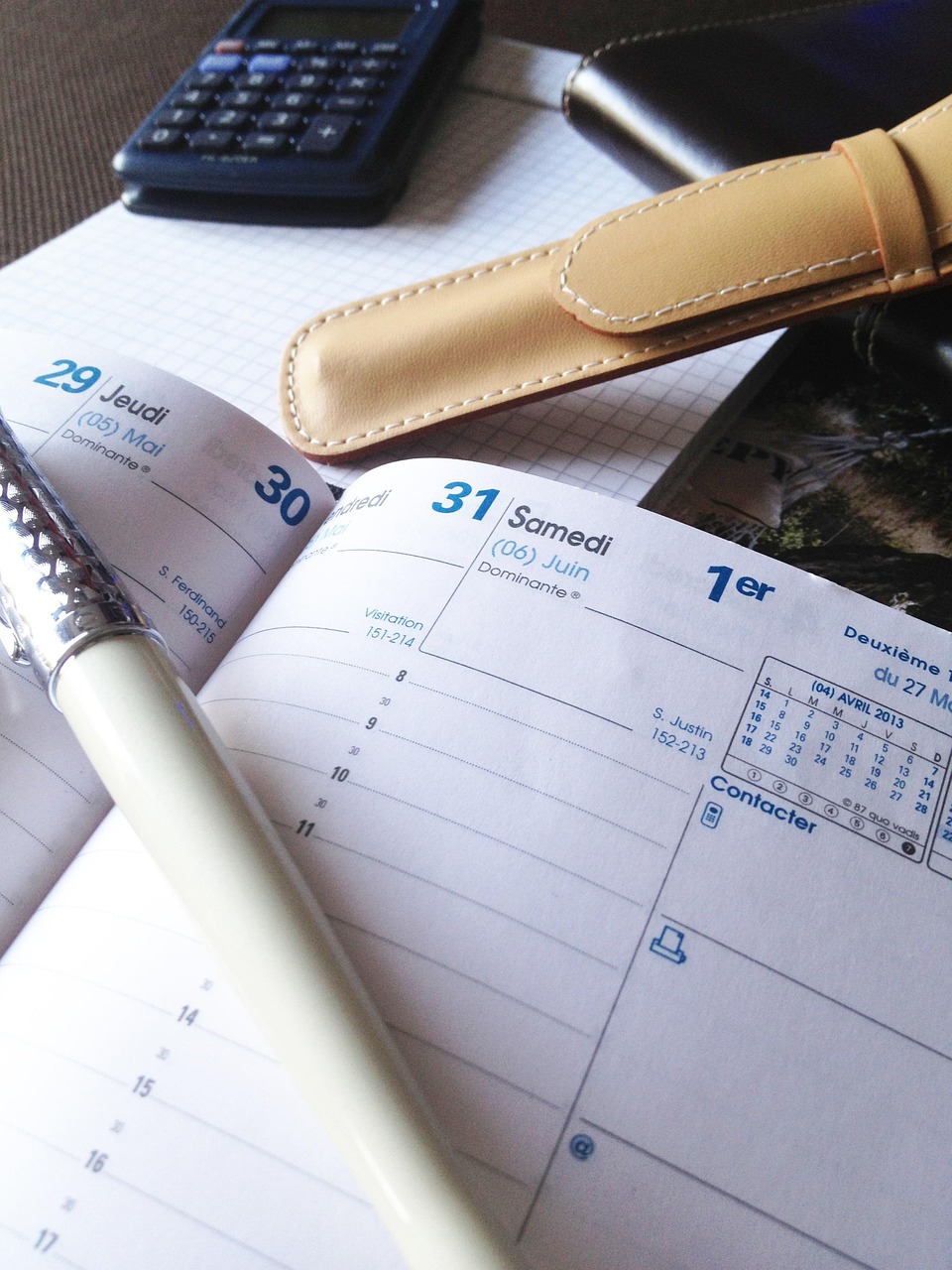英语中短语和词组的区别 英语短语大全加翻译200个
推荐答案
英语中的短语和词组有以下的区别:
1.词组是固定的,是一成不变的,而短语有的是个各国家的俚语和一些在现实生活中累计起来的。
2.词组是用来连接两个成分的,而短语用于修饰的情况较多。
汉语词组和短语的区别:
词组和短语没有任何区别,因此短语就是词组的别称。
其他回答
英语短语大全加翻译200个a bill of fare菜单;节目单
a case in point一个恰当的例子
a couple of一对,一双;几个
a far cry遥远的距离
a few少许,一些
a good deal许多,大量;…得多
a good few相当多,不少
a good many大量的,许多,相当多
a hard nut to crack棘手的问题
a little一些,少许;一点儿
a lot of大量,许多;非常
a number of一些,许多
a point of view观点,着眼点
a series of一系列,一连串
a variety of种种,各种
abide by遵守(法律等);信守
abound in盛产,富于,充满
above all首先,首要,尤其是
above-mentioned上述的
abstain from戒除,弃权,避开
access to接近;通向…的入口
according as根据…而…
according to根据…所说;按照
account for说明(原因等);解释
account for占;打死,打落(敌机)
accuse sb. of sth.控告(某人某事)
act for代理
act on按照…而行动
act out演出
adapt to适应
add up to合计达,总计是
add up加算,合计
adhere to粘附在…上;坚持
adjacent to与…毗连的
admire to do sth.(美口)很想做某事
admit of容许有,有…余地
admit to承认
admit to让…享有
advertise for登广告征求(寻找)某物
affect to假装
afford to(买)得起(某物)
after a little过了一会儿
after a while过了一会,不久
after all毕竟,终究;虽然这样
agree about对…有相同的看法
agree on就…达成协议决定
agree on同意,赞成
agree to同意,商定
agree with同意,与…取得一致
agree with与…相一致;适合
ahead of schedule提前
ahead of time提前,在原定时间以前
ahead of在…前面,先于;胜过
aim for力争…,针对
all along始终,一直,一贯
all at once突然;同时;一起
all but几乎,差一点
all in all总的说来;头等重要的
all of a sudden突然,冷不防
all one's life一生,一辈子
all out竭尽全力
all over again再一次,重新
all over到处,遍及;全部结束
all right令人满意的;好,行
all right行,可以;顺利;确实
all round(在…)周围,处处
all the same仍然,照样地
all the time一直,始终
all the years round一年到头
all too太
allow for考虑到,估计到;体谅
allow of容许(有…),容得
along with同…一道(一起)
amount to总共达到;实际上是
and all that诸如此类
and all that诸如此类
and so forth等等
and so forth等等,如此等等
and so on等等
and so所以,因此;同样
and that而且
and the like等等,以及诸如此类
and then于是,然后
and what not诸如此类,等等
and yet而,然而
answer for对…负责;符合…
answer sb. back(与某人)顶嘴,回嘴
answer up应对迅速
any longer再
any more再;较多些
any number of许多
anything but除…以外任何事(物)
apart from除…之外(别无)
appeal to上诉
apply for提出申请(或要求等)
apply one's mind to专心于…
apply oneself to致力于
apply to向…申请或要求
apply...to把…应用于
approach to接近;约等于
approve of赞成,满意
arm in arm手挽手地
around the clock昼夜不断地,全天地
arrive at到达(某地)
as a matter of fact事实上,其实
as a matter of fact事实上;其实
as a result of由于;作为…的结果
as a result作为结果
as a rule通常,一般(说来)
as a rule通常;一般说来
as a whole总体上
as best one can尽最大努力
as concerns关于
as far as…那么远,直到;至于
as follows如下
as for as就…而论,据…
as for至于,就…方面说
as good as和…几乎一样
as good as几乎(实际)已经
as if好像,仿佛
as it is事实上,既然如此
as it were似乎,可以说是
as long as达…之外,长达
as long as只要
as much as尽…那样多;差不多
as regards关于,至于
as soon as possible尽快
as soon as一…就…
as sure as fate千真万确
as to至于,关于
as usual像往常一样,照例
as well as(除…之外)也,既…又
as well as既…又;除…之外
as well也,同样,不妨
as well也,又
as yet到目前为止
as...as...象,如同,与…一样
aside from(美)除…以外
ask after询问,问候
ask for请求,要求,寻求
初中所有的重要英语词组

词组(短语)是指由两个以上的词语组合而成的一个有意义语法单位。英语词组都是习惯用语,它相当于我们汉语的成语,不能随意搭配。词组是英语句子结构中重要的成分,不可忽视。短语通常没有主语,也没有谓语动词,但是每个短语都有一定的结构和语义,在句子中形成一个重要的环节。
论功能,英语短语可分为名词短语(noun phrase)、形容词短语(adjective phrase)和副词短语(adverb phrase)及动词短语(verb phrase)四种。
名词短语,主要有三种形式,即:一名词组;二动名词组;三不定式动词组。
名词短语和名词功能一样,可在句子中充当主语,如例①;宾语,如例②;补足语,如例③:
① The state of Johore lies in the southern part of Malaysia.
② I enjoy teaching English.
③ Who is to accompany you to the airport?
①是名词组;②是动名词组;③是不定式动词组。
形容词短语也有三种,即:一介词组,如例④-⑥;二现在分词组;如例⑦-⑧;过去分词组,如例⑨-⑩:
④ The boy on my right is the monitor.
⑤ Bankers are people of great wealth.
⑥ I published books on language learning.
⑦ Hearing the scream, the small girl cried.
⑧ Have you seen the thief running for his life?
⑨ Taken aback, the boy burst into tears.
⑩ The rat, chased by a cat, ran into a ditch.
由介词组成的形容词短语紧跟在被修饰的名词之后。由现在分词或过去分词组成者,则可以在名词之前,如例⑦和⑨或名词后头,如例⑧和⑩。
副词短语主要由介词协助组成,作用和一般副词一样,修饰动词,但位置灵活,可以在句前,也可以在动词之后。例如:
11 The naughty boy was asked to stand in front of the classroom.
12 Don't run across the road. It is dangerous to do so.
13 In 1989, I stayed a few months in the University of London as a visiting scholar.
在这些短语中,由介词引荐者既有形容词的功能(见例④-⑥),又可负起副词的使命。这样一来,我们应如何判辨两者的差别呢?方法简单,就是从短语在句中的功能着手:修饰名词的是形容词性的、修饰动词的是副词性的,如:
14a The students in this class are very active.
b If you like, you may study in this class.
15a Two boys at the back of the class are talking.
b An unwell student has fallen asleep at the back of the class.
“In this class”和“at the back of the class”在14a和15 a里修饰名词“students”和“boys”,因此属形容词性短语。反之,在14b和15b中,则分别修饰动词“may study”和“has fallen asleep”,因此是副词性短语。
动词短语由动词及名词、介词或者副词等组成。
词组举例:
一、名词词组
action movie 动作片
bed time 就寝时间
Beijing Opera 京剧
computer game 电脑游戏
family name 姓氏
ice cream 冰淇淋
ID card 身份证
movie star 电影明星
pen pal/friend 笔友
phone number 电话号码
school day 学校上课日
school trip 郊游
summer camp 夏令营
talent show 天才表演
thanks for 因……而感谢
二、动词词组
act out 表演
ask for 请求,要求
be born 出生
be busy 很忙
be different from 与…...不同
be from 来/出自
be like 像
be sure 确信,相信
call…at 打……电话号码
come down to 到达,从一边来到另一边
come from 来自
do homework 做作业
eat …for lunch/breakfast/supper 午餐/早餐/晚餐吃……
eat breakfast/lunch/supper 吃早餐/午餐/晚餐
enjoy v-ing 喜欢做
fill in 填充
fill out 填充
find out 发现,查明
find out 发现,查明
get angry 生气
get home 到家
get to 到达
get up 起床
go home 回家
go on a picnic 搞野餐
go to bed 上床睡觉
go to school 上学
go to the movie 去电影院,去看电影
go to work 去上班
have a look at 看一看,看一眼
have sth for money 购某物付钱
help…with…帮助……做……
know about 关于…….知道
learn a lot about 对……了解很多
learn about 关于……了解
like v-ing 喜欢做……
listen to 听
look at 看着
match…with 与……搭配
play soccer 踢足球
play sports 做运动
play the guitar/piano 弹吉它/钢琴
play with 玩耍,与……玩
put on 穿上
sound like 听起来像
speak English 说英语
stay at home 呆在家中
take a shower 冲沐浴
take part in 参加
take turns 依次,按顺序
talk about 谈论
talk to 与……交谈
tell …about 告诉…….关于……
think of 思考,考虑
wait for 等待
wake up 醒来
watch TV 看电视
write …to….给……写信
write down 写下,抄下
三、介词词组
at home 在家
at school 上学,在学校
at the high/low price 以高价/低价……
between…and… 在……之间
for example 例如
for the reason 因为
from…to 从…..到….
in a word 一句话,总之
in blue 穿蓝色衣服
in English 用英语说
in fact 实际上,事实上
in pairs 对双,成对
in some ways 用一些方面
in the morning/afternoon/evening 在上午/下午/晚上
next to 在…..旁边
on sale 正在出售
on the back of 在……的后面或背上
on TV 看电视,通过电视
on weekends 在周末
四、形容词与副词词组
all over the world 全世界
all right 行,好吧
best wishes 最大的祝愿
every day 每天
free time 空时间
good luck 祝好运
here you are 给你
lost and found 失物招领
running star 赛跑明星
there be (is单数和不可数名词/are名词复数) 某处有……
too much 非常,很, 太
too…to 太……而不能……
very much 非常,很
五、其它词组
a little 一点
a lot 很,非常
a photo of 一张…..相相片
a set of 一套
how much 多少(钱)
how old 多大
lots of 许多,大量
what color 什么颜色
what kind 哪种
what letter 什么字母
what’s on? 发生了什么事?

1.kinds of 各种各样的
2. either…or…或者……或者……,不是……就是……
3. neither…nor…既不……也不……
4. Chinese tea without, anything in it 中国清茶
5. take a seat 就坐
6. home cooking 家常做法
7. be famous for 因……而著名
8. on ones way to在……途中
9. be sick/ill in hospital生病住院
10. at the end of在……的尽头,在……的末尾
11. wait for 等待
12. in time 及时
13. make one’s way to…往……(艰难地)走去
14. just then 正在那时
15. first of all 首先,第一
16. go wrong 走错路
17. be/get lost 迷路
18. make a noise 吵闹,喧哗
19. get on 上车
20. get off 下车
21. stand in line 站队
22. waiting room 候诊室,候车室
23. at the head of……在……的前头
24. laugh at 嘲笑
25. throw about 乱丢,抛散
26. in fact 实际上
27. at midnight 在半夜
28. have a good time=enjoy oneself玩得愉快
29. quarrel with sb. 和某人吵架
30. take one’s temperature 给某人体温
31. have/get a pain in…某处疼痛
32. have a headache 头痛
33. as soon as… 一……就……
34. feel like doing sth. 想要干某事
35. stop…from doing sth. 阻止……干某事
36. fall asleep 入睡
37. again and again再三地,反复地
38. wake up 醒来,叫醒
39. instead of 代替
40. look over 检查
41. take exercise运动
42. had better(not) do sth. 最好(不要)干某事
43. at the weekend 在周末
44. on time 按时
45. out of从……向外
46. all by oneself 独立,单独
47. lots of=a lot of 许多
48. no longer/more=not…any longer/more 不再
49. get back 回来,取回
50. sooner or later迟早
51. run away 逃跑
52. eat up 吃光,吃完
53. run after 追赶
54. take sth. with sb. 某人随身带着某物
55. take(good) care of…=look after…(well) (好好)照顾,照料
56. think of 考虑到,想起
57. keep a diary 坚持写日记
58. leave one by oneself 把某人单独留下
59. harder and harder 越来越厉害
60. turn on打开(电灯、收音机、煤气等)
61. turn off 关
[重温重点句型]
1.So + be/助动词/情牵动词/主语.
前面陈述的肯定情况也适于另一人(物)时,常用到这种倒装结构,表示“另一人(物)也如此。”前面陈述的否定情况也适于另一人(物)时,常用“Neither/ Nor + be/助动词/情态动词+主语.”这种倒装结构。
注意:“So+主语+be/助动词/情态动词.”这一句型常用于表示赞同,进一步肯定对方的看法,表示“的确如此。”“是呀。”
2.Turn right/left at the first/second/…crossing.
这一指路的句型意为“在第一/二/……个十字路口向右/左拐。”相当于Take the first /second/…turning on theright/left.
3.It takes sb.some time to do sth.
此句型表示“干某事花了某人一段时间。”其中的it是形式主语,后面的动词不定式(短语)才是真正的主语.
4.…think/find + it + adj. + to do sth.
此句型中的it是形式宾语,不可用其它代词替代,形容词作宾语的补足语,后面的动词不定式(短语)才是真正的宾语。
5.What’s wrong with…?
此句型相当于What’s the matter/ trouble with…?后跟某物作宾语时,意为“某物出什么毛病了?”后跟某人作宾语时,意为“某人怎么了?”
6.too…to…
在so…that…复合句中,that后的句子是否定句时,常与简单句too…to…(太……而不能……)进行句型转换。
在so…that…复合句中,that后的句子是肯定句时,常与简单句…enough to…进行句型转换.
7.Sorry to hear that.
全句应为I’m sorry to hear that. 意为“听到此事我很难过(遗憾)。”常用于对别人的不幸表示同情、遗憾之意。
[重点句型、词组大盘点]
1. She used to be a Chinese teacher. 她过去是一位汉语老师。
[用法] used to + 动词原形,表示过去经常性的动作或存在的状态,含有现在不再如此之意。
[搭配] used to do的否定式可以是usedn’t to do或didn’t use to do.
[比较] used to do sth. 过去常做某事;be/ get used to doing sth. 习惯于做某事;be used to do sth. 被用来做某事。
2.…return it sooner or later.
……迟早要将它归还。
[用法] l)sooner or later意为“迟早”、“早晚”。
2)return此处用作及物动词,意为“归还”,相当于give back.
[拓展]return还可用作不及物动词,意为“返回”,相当于go back或come back。
3.No matter what the weather is like…无论天气……
[用法]no matter what 相当于whatever,其意为“无论什么”,引导状语从句。
[拓展]类似no matter what的表达方式还有:
no matter when无论什么时候
nbsp; nbsp;nbsp;no matter where无论什么地方
no matter who无论谁
no matter how 无论怎么样
4. A young man practised speaking English with Mr. Green.
一位年经人与格林先生练习讲英语。
[用法]practise doing sth. 表示“实践、练习(做)某事”。
[拓展]practice名词,“实践”、“实施”、“练习”;put a plan into practice实行某计划。
5. He encouraged everyone to take part in protecting our lakes, rivers, seas and oceans.
他鼓励大家参加保护我们的湖泊、河流和海洋的活动。
[用法]1)encourage用作动词,意思是“鼓励”、“支持”。
2)take part in“参加”,常表示参加活动。
3)protect 是动词,表示“防御”、“保护”。
[搭配]1)encourage sb. in sth.在某事上鼓励或支持某人
nbsp;encourage sb. to do sth.鼓励某人干某事
2)protect sh. from sth.使某人不受某事侵袭或伤害
6. …to warn people about sharks in the water. ……警告人们当心水里的鲨鱼。
[用法] warn用作动词,意思是“警告”、“警戒”。
[搭配]1)warn sb.+ that从句
2)warn sb. of sth. 警告某人某事
3)warn sb. to do sth.告诫某人做某事
4)warn sb. against(doing) sth.告诫某人当心某事/不要做某事
重点句型、词组大盘点 1. She used to be a Chinese teacher. 她过去是一位汉语老师。 [ 用法 ] used to + 动词原形,表示过去经常性的动作或存在的状态,含有现在不再如此之意。 [ 搭配 ] used to do的否定式可以是usedn’t to do或didn’t use to do. [ 比较 ] used to do sth. 过去常做某事;be/ get used to doing sth. 习惯于做某事;be used to do sth. 被用来做某事。 ……
短语总结
It’s time for sth. 该到做某事的时间了.
It’s time to do sth.(It’s time for sb. to do sth) 该到(某人)做某事的时间了.
2. can’t wait to do sth. 迫不及待地要求做某事.
3. ask (tell)sb. (not )to do sth . 请(告诉)某人(不)做某事.
4. make/let sb. to do sth. 让某人做某事.
5. hear/see/sb. do sth 听见/看见某人做某事.
6. had better(not )do sth 最好不做某事.
7. It’s better to do sth最好做某事
8. It’s best to do sth最好做某事
9. enjoy 喜欢做某事
10. finish 结束做某事
11. keep 继续做某事
12. keep on doing sth. 继续做某事
13. carry on 继续做某事
14. go on 继续做某事
15. feel like 喜欢做某事
16. stop to do sth 与stop doing sth 停下来去做某事(与)停止做某事.
17. forget/remember to do 与 forget/remember doing sth.忘记/记得去做某事(与) 忘记/记得曾经做过事.
18. keep(precent,stop)sb. from doing sth阻止/防止/阻栏栽人做某事
19. prefer….to ……喜欢…..胜过……
20. prefer to do sth. rather than do ath.宁愿做某事,而不原做某事.
21. used to do sth.过去常常做某事.
22. What’s wong with……? …..出了问题(事)?
23. have nothing to do with….. 与…..无关
24. be busy doing sth . 在忙于做某事
25. too…..to….. 太……以致知于不……
26. so ……that ….. 如此….. 以致知于不……
27. such…..that…… 如此….. 以致知于不……
28. It take sb. some time to do sth .某人做某事用了一些时间.
29. spend …..on sth.(doing sth.)花钱/时间做某事.
30. pay…..for sth.花费(钱)买某物.
31. What /how about……? …….怎么样(好吗)?
32. would like to do sth .想要/愿意做某事..
33. I don’t think that我认为……不…..
34. Why not do sth.? Why don’t you do sth .?为什么不做某事呢?
35. What do you mean by….?你….是什么意思?
36. What do you think of …..(How do you like ….)你认为….怎么样?
37. Mike enjoys collecting stamps . So do I.迈克喜欢集邮.我也也喜欢.
38. The more, the better . 越多越剧好.
39. Thanks for doing sth.谢谢你做了某事.
40. It is said that….. 据说……



